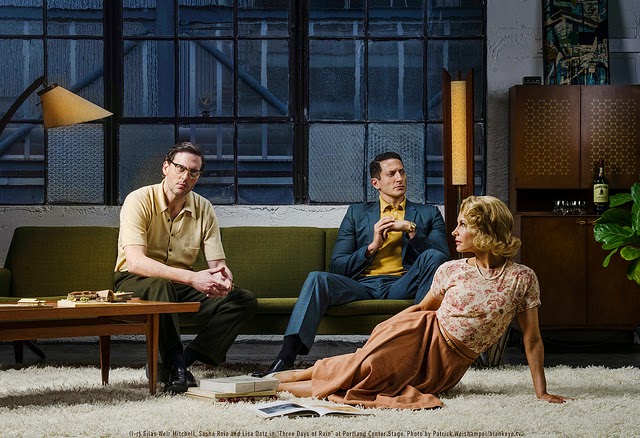Portland Center Stage is celebrating it’s 30th anniversary this season! Congratulation! The first productions for this new season are Fun Home running September 16 – October 22 on the US Bank Main Stage and in the downstairs intimate Ellen Bye Theater will be Every Brilliant Thing, running September 23 – November 5, 2017. Both plays have moments of comedy and joy, but also have a dark lining: suicide and depression, the gap between the face one wears to the world and the mental well being inside. On stage and in the audience, you will be laughing and crying together.

Portland Center Stage: Fun Home Publicity Photo Left to right: Medium Alison (Sara Masterson), Alison (Allison Mickelson), Bruce Bechdel (Robert Mammana) and Small Alison (Aida Valentine) in “Fun Home” at The Armory. Photo by Kate Szrom.

















